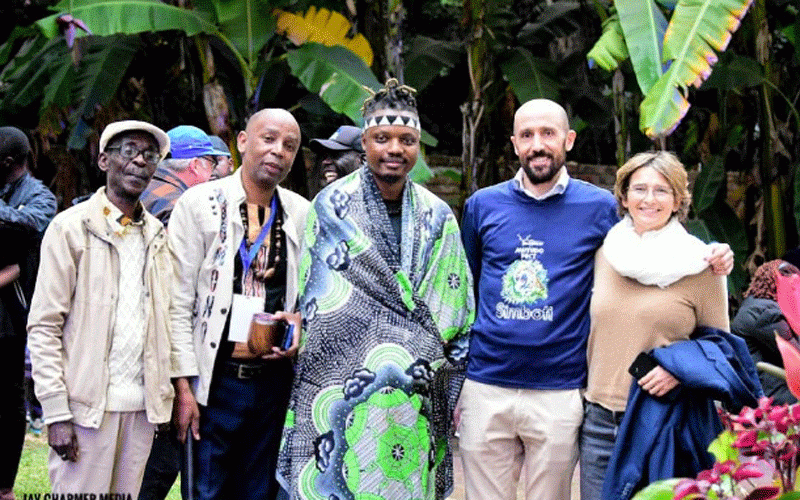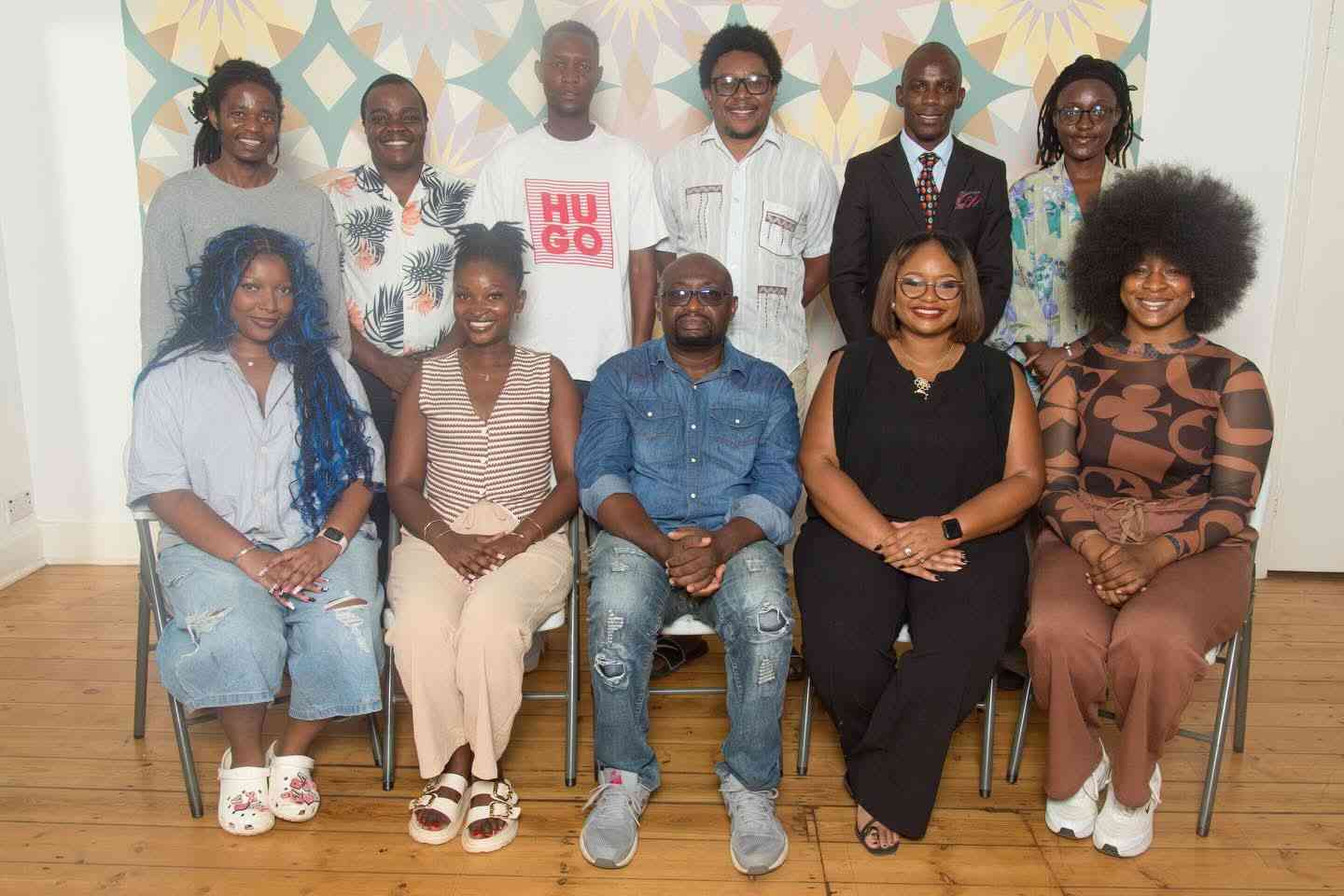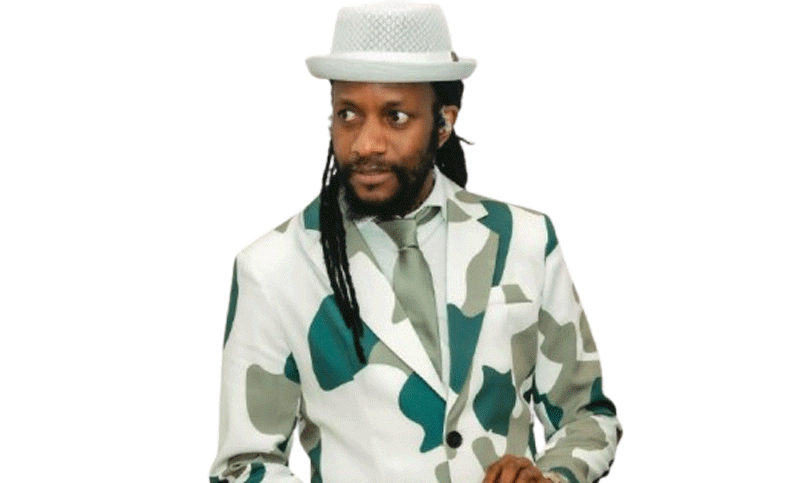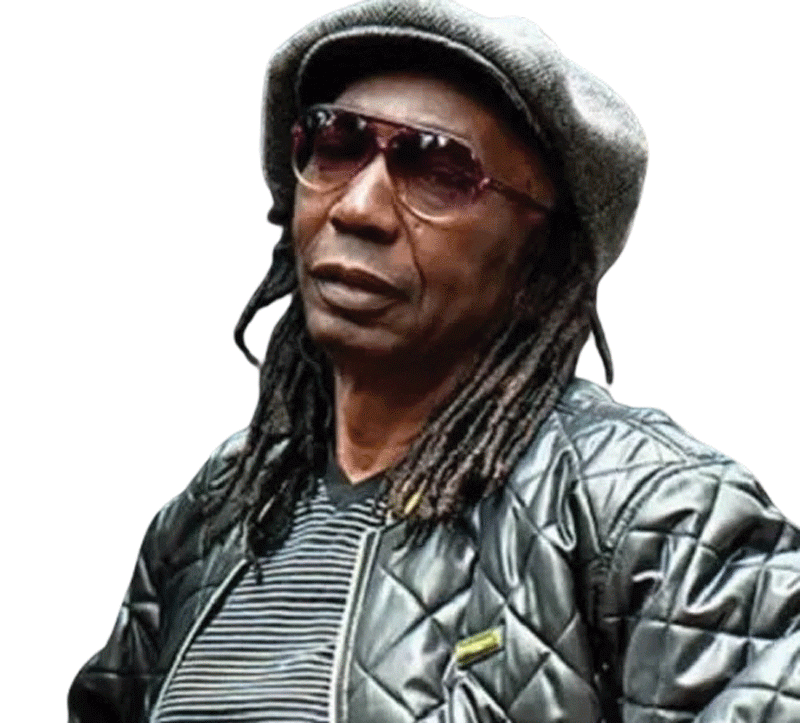
Thirteen years ago, Dereck Mpofu burst onto the local music scene with his breath-taking song Chisikana Changu Zimbabwe. With its sweeping orchestral melodies, the track evolved into an enduring anthem, that left a long-lasting impression that still lingers on till this day.
Mpofu, who recently rebranded to Yemukono, is the mastermind behind the inaugural Mutupo Festival, hosted on June 15 at Alliance Francaise de Harare.
The festival featured storytelling sessions exploring the significance of various totems in Zimbabwean culture, alongside showcases of traditional wear and cultural exhibitions. Attendees enjoyed traditional food and drinks, including local cuisine and braai.
The event coincided with significant international days: International Day of the African Child (June 16) and World Day to Combat Desertification & Drought (June 17). Attendees included Alliance Française director Fanny Gauthier, France’s deputy head of mission Benjamin Durrenberger, public speaker and author Joshua Maponga, Marie-Laure Soukaina Edom of AfriKera Arts Trust, renowned poet and writer Chirikure Chirikure, as well as students from Mashambanzou Care Trust and Rusununguko High School.
The show opened with performances by percussionist/poet Sebede and Maizon, followed by a nine-piece Marimba ensemble comprising students from Rusununguko High School.
The ensemble delivered a medley of marimba renditions of popular songs, including Leonard Zhakata’s Mugove, Oliver Mtukudzi’s Perekedza Mwana, and Jah Prayzah’s Goto, among others.
Interspersed between the performances were presentations on leadership within families and cultural values and children’s rights, led by Cath the Catalyst, Maponga and Christopher Gadzirayi from Bindura University of Science Education.
Gadzirayi highlighted the challenges faced by children in Africa, including education, healthcare, welfare, food, nutrition, and their right to identity.
- In the Groove:Nyabinde benefit gig: A positive outcome?
- In the Groove:Nyabinde benefit gig: A positive outcome?
- Carmen Hwarari announces album launch
- Dereck Mpofu rebrands
Keep Reading
He noted: “We are disabled in terms of language. How best can we leverage the mutupo (totem) culture and learn from it? It gives us an identity and lineage, tells us where we come from, and provides lenses through which human behaviour and social structures are built.”
The Day of the African Child, has been celebrated on June 16 since 1991. It was first initiated by the Organisation of African Unity, now known as the African Union. It honours the 20 000 students from numerous schools in Soweto, who participated in what is now known as the Soweto Uprising of 1976, which saw more than 100 school children shot dead for demanding to be taught in their own language.
Renowned artists, including Othnell Mangoma Moyo, the duo of Saxopash and Tomas Lutuli Brickhill, as well as Chirikure Chirikure, kept the audience well entertained.
Mpofu told Standard Style that the festival’s coincidence with the Day of the African Child was intentional, driven by legacy building.
“We want to leave behind a legacy for our children, allowing them to understand their heritage,” he said.
“The festival focused on music centered on true African heritage and the science of where we come from — where surnames change, but totems remain the same.”
With a traditional staff in hand and clad in a brown jacket adorned with symbols of various animals associated with totems, the artist, known for his counter-tenor voice, had the crowd singing along.
His vocal range effortlessly shifted between registers, particularly evident when he performed his hit song Chisikana Changu Zimbabwe.
He shared his musical influences, saying: “I love Jabu Khanyile, Ladysmith Black Mambazo, and Peter Muparutsa’s vocal range. However, in terms of performance, I enjoy Sabaton and AC/DC.”
As the night rolled on, Mpofu invited a stellar lineup of artists, including Albert Nyathi, Mukundu, Josh Meck, Pah Chihera, Tina Watyoka, and Ropafadzo Chimbetu Mhlanga, who kept the crowd dancing and singing throughout the chilly evening.










